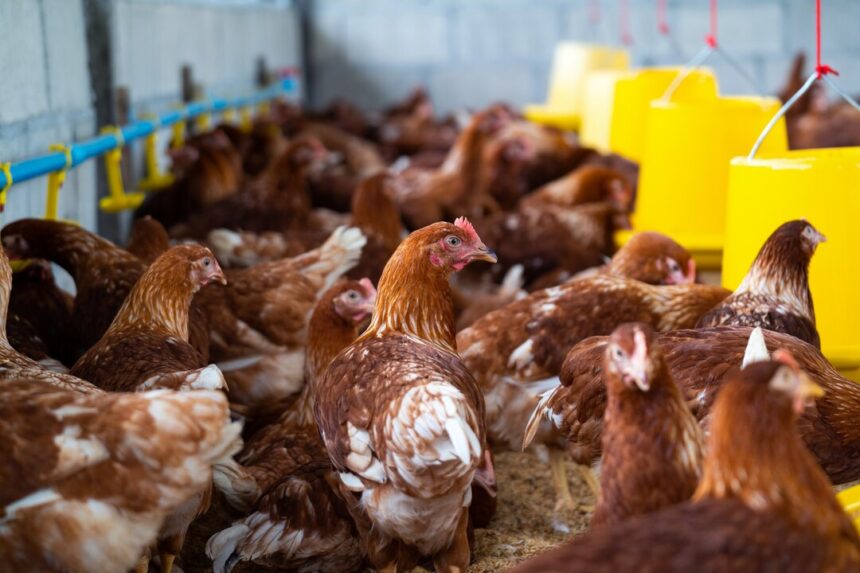Lohmann Brown chickens are a popular choice among poultry farmers in South Africa, prized for their exceptional egg production, docile temperament, and adaptability to various farming systems. Developed through selective breeding for high egg-laying performance and robust health, Lohmann Brown chickens are well-suited to both commercial egg production and small-scale farming operations. Whether you’re considering breeding or farming Lohmann Brown chickens in South Africa, understanding key aspects of their management and care is crucial for success. In this article, we’ll explore 10 important things you should know about breeding Lohmann Brown chickens in South Africa.
- Lohmann Brown Characteristics:
Lohmann Brown chickens are renowned for their prolific egg-laying capabilities, with hens typically producing between 300 to 350 brown-shelled eggs per year. They have a medium-sized frame, with rich brown plumage and bright red combs and wattles. Lohmann Brown chickens exhibit a friendly and docile temperament, making them easy to handle and manage on the farm. - Egg Production:
One of the primary advantages of Lohmann Brown chickens is their exceptional egg-laying performance. Lohmann Brown hens begin laying eggs at around 18 to 20 weeks of age and continue to lay consistently throughout their productive lifespan, which typically ranges from 18 to 24 months. With proper management and nutrition, Lohmann Brown hens can achieve high rates of egg production, making them an ideal choice for commercial egg producers in South Africa. - Adaptability:
Lohmann Brown chickens are well-adapted to a wide range of environmental conditions, making them suitable for various farming systems and climates in South Africa. They thrive in both free-range and intensive production systems, with excellent disease resistance and adaptability to hot and humid climates. Lohmann Brown chickens are also known for their efficient feed conversion, making them economical to raise in commercial egg production operations. - Housing and Environment:
Providing adequate housing and environmental conditions is essential for maximizing the health and productivity of Lohmann Brown chickens. Housing should provide protection from predators, adverse weather conditions, and excessive heat or cold. Proper ventilation, lighting, and sanitation are crucial for maintaining optimal flock health and egg production. Additionally, providing access to clean water, nutritious feed, and sufficient space for exercise and foraging is essential for promoting the well-being of Lohmann Brown chickens. - Nutrition and Feeding:
A balanced and nutritious diet is essential for supporting the high egg-laying performance of Lohmann Brown chickens. Commercially formulated layer feeds containing the necessary vitamins, minerals, and protein are recommended for optimal egg production. Additionally, providing access to calcium supplements, such as oyster shell or limestone, is essential for promoting strong eggshells and preventing calcium deficiencies in laying hens. - Health Management:
Maintaining the health and well-being of Lohmann Brown chickens is paramount for maximizing egg production and flock longevity. This includes implementing biosecurity measures to prevent the introduction and spread of diseases, regular health checks, vaccinations, and deworming. Monitoring flock behavior, egg quality, and mortality rates can help identify and address any health issues promptly. - Breeding Objectives:
When breeding Lohmann Brown chickens in South Africa, farmers typically focus on improving specific traits such as egg production, egg quality, temperament, and disease resistance. Selective breeding programs aim to enhance desirable traits while maintaining genetic diversity and adaptability to local environmental conditions. Proper selection of breeding stock based on performance records and pedigree information is essential for achieving breeding objectives and improving flock performance over time. - Reproduction and Hatchery Management:
Managing reproduction and hatchery operations is essential for maintaining a consistent supply of replacement pullets and maximizing egg production in Lohmann Brown flocks. Proper breeding management, including selection of breeding pairs, artificial insemination, and egg collection and incubation, can help ensure high hatchability rates and healthy chicks. Implementing quality control measures, such as regular candling and temperature monitoring, is essential for successful hatchery operations. - Egg Handling and Marketing:
Proper egg handling and marketing practices are crucial for maintaining egg quality and meeting consumer expectations. Lohmann Brown eggs should be collected promptly, cleaned, and stored in clean and hygienic conditions to prevent contamination and spoilage. Developing relationships with local markets, retailers, and egg distributors can create value-added opportunities for Lohmann Brown eggs and promote the brand reputation of your farm. - Support and Resources:
For farmers interested in breeding and farming Lohmann Brown chickens in South Africa, there are various resources and support networks available. These include poultry associations, agricultural extension services, hatcheries, and online forums where farmers can access information, technical assistance, and networking opportunities to support their Lohmann Brown farming endeavors.
Breeding and farming Lohmann Brown chickens offer numerous opportunities for poultry farmers in South Africa. With their exceptional egg-laying performance, adaptability, and low maintenance requirements, Lohmann Brown chickens are well-suited to both commercial egg production and small-scale farming operations. By understanding key aspects of Lohmann Brown management, including housing, nutrition, health care, and marketing, poultry farmers can capitalize on the breed’s potential and contribute to the growth and sustainability of South Africa’s poultry industry.









